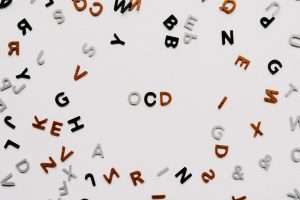 0
0

Seeking Help for OCD: How Counselling and CBT Can Make a Difference
Singapore
Jun 3 2023
Obsessive Compulsive Disorder (OCD) is a challenging mental health condition that can significantly affect daily life. If you or a loved one is dealing with OCD, it’s essential to know that help is available. Counselling, particularly Cognitive Behavioral Therapy (CBT), can be a valuable resource in managing and alleviating the symptoms of OCD. In this article, we will explore how counselling can make a significant difference in the lives of individuals with OCD, providing an understanding of the therapeutic approaches and techniques used in CBT.
Understanding OCD and the Role of Counseling
Obsessive Compulsive Disorder (OCD) is characterized by recurring thoughts (obsessions) and repetitive behaviours (compulsions) that can significantly impact daily life. These intrusive thoughts and compulsive actions can be distressing and time-consuming and interfere with one’s ability to function effectively. Counselling plays a crucial role in helping individuals with OCD gain insight into their condition, develop effective coping strategies, and regain control over their lives.
The Benefits of Cognitive Behavioral Therapy (CBT) for OCD
What is Cognitive Behavioral Therapy (CBT)?
Cognitive Behavioral Therapy (CBT) is a widely recognized and evidence-based therapeutic approach for treating OCD. CBT focuses on the relationship between thoughts, emotions, and behaviours, aiming to identify and challenge negative thought patterns and beliefs associated with OCD symptoms.
Collaborative and Individualized Approach
One of the key advantages of CBT is its collaborative and individualized nature. A mental health professional can work closely with the individual with OCD to create a tailored treatment plan that addresses their specific challenges and goals. This personalized approach helps individuals develop a deeper understanding of their OCD and empowers them to participate in their recovery process actively.
Cognitive Restructuring: Challenging Negative Thought Patterns
Identifying Negative Thoughts and Beliefs
Cognitive restructuring in CBT involves identifying and challenging negative thought patterns and beliefs associated with OCD. The mental health professional helps individuals recognize the irrationality of their obsessive thoughts and assists them in reframing these thoughts in a more realistic and balanced manner.
Creating Alternative and Adaptive Responses
Through cognitive restructuring, individuals with OCD learn to replace their negative thoughts with more positive and adaptive responses. They develop techniques to challenge distorted thinking, question the evidence supporting their obsessions, and generate alternative explanations or perspectives.
Behavioural Techniques: Breaking the Cycle of Compulsions
Behavioral Training
Behavioural training is an essential aspect of counselling for OCD. It involves learning and practising alternative behaviours to replace compulsive actions. By engaging in healthier behaviours, individuals with OCD can disrupt the cycle of obsessions and compulsions. Behavioural training aims to increase adaptive responses and decrease reliance on repetitive rituals. Mental health professionals may help individuals develop personalized strategies and techniques, such as relaxation exercises, distraction techniques, or engaging in activities that provide a sense of accomplishment and satisfaction.
Developing Coping Strategies and Relapse Prevention
Coping Strategies
Counselling for OCD focuses on equipping individuals with effective coping strategies to manage their symptoms. These strategies may include relaxation exercises, stress management techniques, and mindfulness practices that help individuals reduce anxiety and enhance overall well-being.
Relapse Prevention
Relapse prevention is a crucial aspect of counselling for OCD. Mental health professionals work with individuals to identify potential triggers or situations that may lead to symptom relapse. They provide guidance on how to recognize early warning signs and develop strategies to prevent a full-blown relapse, ensuring that individuals are equipped to maintain their progress even after the counselling sessions have ended.
The Importance of Therapeutic Relationship and Support
Establishing a Trusting Therapeutic Relationship
The therapeutic relationship between the individual and the mental health professional is vital for the success of counselling. A compassionate, non-judgmental, and trusting therapeutic alliance provides individuals a safe space to explore their thoughts, emotions, and behaviours associated with OCD.
Support and Encouragement
Counselling not only provides individuals with practical tools and techniques but also offers emotional support and encouragement throughout their journey. Having a mental health professional who understands and validates their experiences can immensely empower and motivate individuals with OCD.
In short
Counselling, particularly Cognitive Behavioral Therapy (CBT), is an invaluable resource for individuals with OCD seeking help and relief from their symptoms. By addressing the negative thought patterns and behaviours associated with OCD, counselling equips individuals with the tools they need to manage their condition and improve their quality of life. If you or someone you know is struggling with OCD, don’t hesitate to reach out to us for a session. Remember, recovery is possible with the right help and support, and individuals with OCD can lead fulfilling and meaningful lives.
Related articles
Understanding Obsessive Compulsive Disorder (OCD): A Comprehensive Guide
Exploring the Value of Counselling as a Long-Term Investment
If you like what you read, follow us on Facebook, Instagram or LinkedIn to get the latest updates.
Have a question? Reach out to us through our contact form or WhatsApp.
Want to speak to our clinicians? Book your appointment here!

Join Our Newsletter
Subscribe to our newsletter and receive daily updates & promotions!






